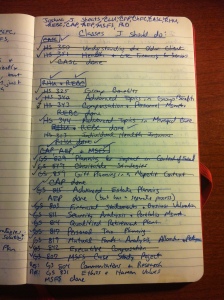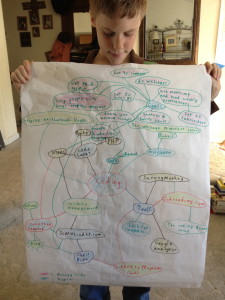Looking for a way to get started with a real goal-setting exercise with your wife for your children’s coming educational year? Borrow ideas from Joshua Sheats’ podcast on how to set and achieve your financial goals in 2015
Most parents do not expect their children to be able to do better than they themselves did in life. They almost say it out loud and they certainly reinforce it with their attitude.
This expectation drives parents to try and lower their progeny’s youthful enthusiasm. This is when you hear such statements as “high school is the best time of your life so make it last as long as you can.” But all parents are not like that. A smaller group of parents is more hopeful that the best is yet to come and so they make plans for their children to enter into adulthood more prepared than they were. It is my guess that 80% of parents fall into the low expectations category and the other 20% of parents have serious hopes and plans that their children will do better. (By the way, I’m not bothering here to define what “better” is as that is a subject whose details I leave to you.)
Likely you are falling into that 20% of parents who have hopes about improving the lives of your descendants. Otherwise you would not be bothered to follow a blog, such as this one, on how to develop massive, life-changing talent starting early in life. But have you thought about rising into that even smaller, super-hopeful category of parents? Are you in that category?
I’m not speaking of that category of people who believe that they can get their children just achieve a little more success than they did. I’m speaking of those parents who believe they can DRAMATICALLY improve the adult outcome of their children’s lives. The size of that category of parents who believe and act on that belief of dramatic improvement is probably in the order of 2 out of 100 parents (that would represent 20% of the already 20% hopeful people). That sounds about right, doesn’t it? Imagine you are at a social mix of about 100 parents in one room. You would expect that most are just expecting their kids to do “okay” after high-school, or maybe they are not really thinking about their future at all and relieved they made it through the teenage years. You would expect that about two of ten people mingling in a corner will seem pretty upbeat talking about future possibilities for their son or daughter. Those are part of the hopeful twenty percenters and that is good. But in the entire group of 100 people, there would also be about two parents who have unusually high expectations for their children. Those two people would seem to truly believe they can pull off the kind of upbringing for their children that would have such dramatic ramifications.
If you are ready to roll up your sleeves with your spouse to generate some great ideas for your child’s future, I recommend you listen to a recent podcast by Joshua Sheats on how to set goals. Find a way to get yourself into that 20% of 20% parents who have concrete hope and very high expectations. You can print out his list of great prompts for you to use in your goal setting session and substitute your son’s name, instead of yours, in the suggested exercises.
2015 is going to be a great year.






















